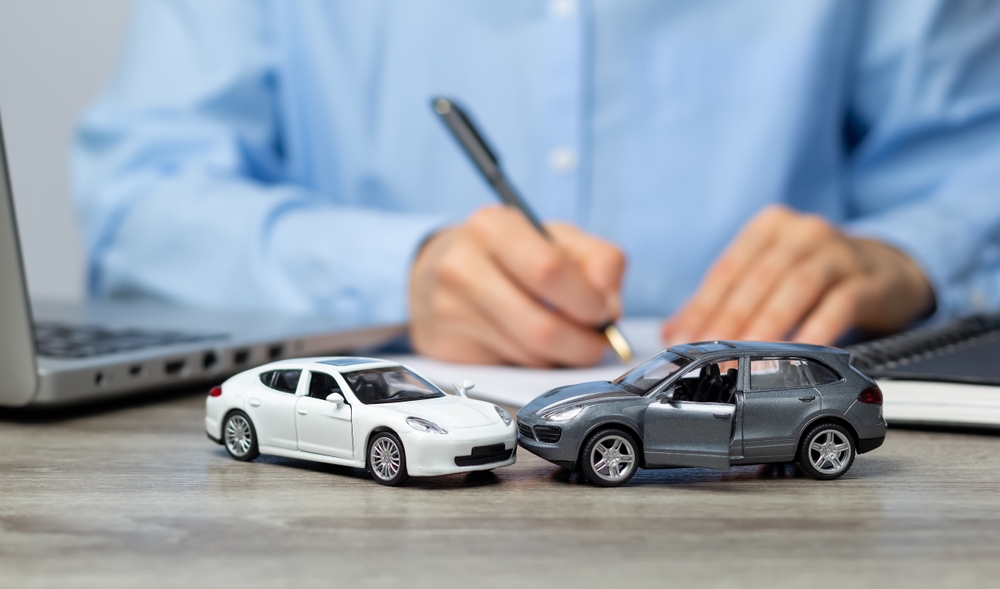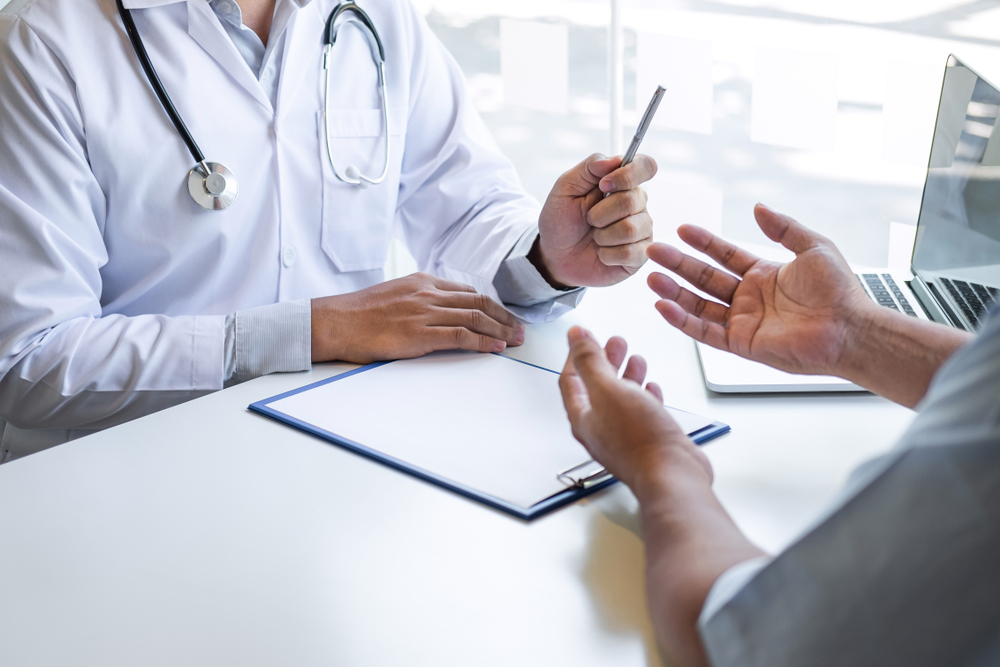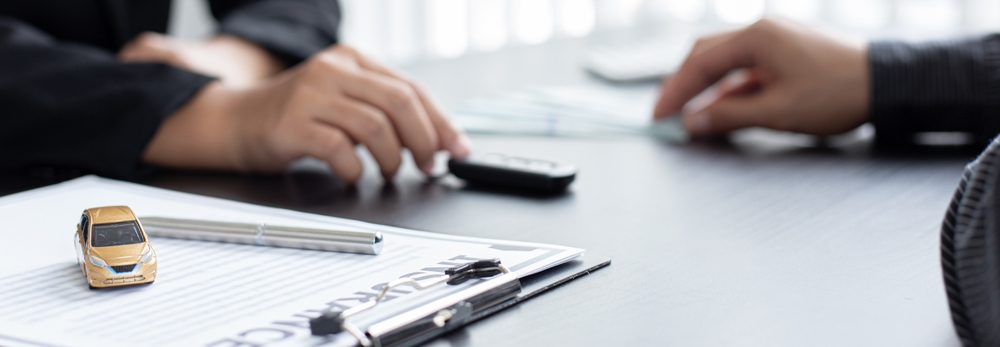Being involved in an accident on the Schuylkill Expressway, or any roadway in Philadelphia, can be a stressful and disorienting experience.
It's important to know the steps to take immediately following an incident to ensure your safety and the safety of others and to prepare for any necessary legal actions properly.
Here's a guide from a Philadelphia car accident lawyer to guide you after an accident on Schuylkill Expressway.
Get A Free Consultation Today!
File a Police Report with the Philadelphia PD or the PA DOT

Filing a police report is an important step after an accident in Philadelphia and Pennsylvania. This document is an official incident record and plays a huge role in insurance claims and potential legal proceedings.
Below, we'll outline the process of filing a police report in Philadelphia and Pennsylvania, including the legal requirements and steps to follow.
Requirements Under Pennsylvania Law
Under Pennsylvania law, drivers involved in an accident must report the incident in certain circumstances. Specifically, if the accident results in injury, death, or significant property damage, you must notify the police immediately. Remember, you're not alone; a car accident lawyer can support you in staying safe and informed after an accident on the Schuylkill Expressway.
At the Scene
- Immediate Reporting: If the police arrive at the accident scene, they will gather information, assess the situation, and file a report based on their findings. Provide them with accurate and detailed information about the incident.
- Exchange Information: While waiting for the police, exchange contact and insurance information with the other driver(s). This includes names, addresses, driver's license numbers, and insurance details.
If Police Do Not Come to the Scene
In some cases, especially if the accident is minor and there are no serious injuries, police may not come to the scene. Here's what to do:
- Self-Reporting: Pennsylvania law requires you to file a report yourself if the police do not. You must complete the Pennsylvania Department of Transportation (PennDOT) Form AA-600 within five days of the accident if property damage prevents a vehicle from being driven, injured, or killed. This form is available on the PennDOT website.
- Gather Evidence: Take photos of the accident scene, including all vehicles involved, visible injuries, and road conditions. This evidence will be valuable when filling out the AA-600 form or if legal issues arise later.
After Filing the Report
- Obtain a Copy: Whether the police generate a report at the scene, or you submit a self-report, make sure to obtain a copy for your records. This document is essential for insurance claims and any legal matters that may follow.
- Notify Your Insurance Company: Inform your insurance provider about the accident and provide them with the police report. This will be beneficial in processing your claim.
- Consult an Attorney: Especially if there are injuries or significant damage, consulting with a car accident attorney can aid your understanding of your rights and next steps. A lawyer can advise you on dealing with insurance companies and potential legal proceedings.
Additional Tips
- Do Not Admit Fault: When speaking with the police, other drivers, or insurance companies, provide facts without admitting fault. Whether the police generate a report at the scene or you submit a self-report, obtain a copy for your records.
- Document Everything: Keep a detailed record of all interactions, medical treatments, and repairs related to the accident. This documentation will be invaluable for insurance and legal purposes.
- Follow-up: If you've filed a report or are waiting on a copy from the police, follow up to ensure you receive it. Keep in touch with your insurance company and lawyer to stay informed about your case.
Seek Medical Attention
Seeking medical attention after an accident is a step that should never be overlooked or delayed. In the chaos following an accident, adrenaline can mask pain, and some injuries may not show symptoms immediately.
Ensuring that you see a healthcare provider promptly can help identify and treat injuries early, significantly impacting your recovery process.
Identifying Hidden Injuries
Many types of injuries, such as whiplash, internal bleeding, or concussions, can have delayed symptoms. Seeking immediate or early medical evaluation ensures identifying and treating these injuries before they become more serious. A healthcare provider can perform the necessary examinations, such as X-rays, MRIs, or CT scans, to uncover injuries that aren't immediately visible.
Documentation for Legal and Insurance Purposes
Seeing a healthcare provider after an accident also creates a medical record of your injuries, which can benefit insurance claims or legal action. This documentation establishes a clear link between the accident and your injuries, which can be essential in proving the extent and cause of your injuries to insurance companies or in court.
Steps to Take At the Scene of an Accident on Schuylkill Expressway
If you suffered an injury at the scene of the accident on Schuylkill Expressway, accept medical attention from emergency responders. They can provide an initial assessment and decide whether you require transportation to the hospital for further treatment.
Steps to Take After Leaving the Scene
Even if you don't feel injured immediately after the accident, seeing a healthcare provider as soon as possible is wise. Depending on the severity of your potential injuries, this can be your primary care physician, an urgent care clinic, or an emergency department.
What to Expect During Your Visit to a Doctor After a Crash on Schuylkill Expressway

The healthcare provider will ask about the accident and your medical history. They will perform a physical examination to check for injuries and may order diagnostic tests to investigate further.
Diagnostic Tests
Based on the initial assessment, the medical team may order tests such as X-rays, MRIs, or CT scans to search for internal injuries, fractures, or other conditions that might not be immediately apparent.
Follow-up Care
The healthcare provider may recommend follow-up care, including additional tests, professional visits, physical therapy, or other treatments. Follow these recommendations closely to ensure the best possible recovery.
Notifying Your Insurance Company After an Accident on Schuylkill Expressway
After an accident on Schuylkill Expressway, remember to notify your insurance company with care. This communication is not just about fulfilling a contractual obligation; it's also about setting the stage for your insurance claim.
Promptly informing your insurance provider about the accident helps to initiate the claim process. It also ensures that you comply with the terms of your insurance policy, which typically require notification of any accidents within a specific timeframe. Delaying this step can complicate the claims process or, in worst-case scenarios, lead to a denial of coverage for the incident.
Gathering Necessary Information for Your Claim
Prepare all relevant information before contacting your insurance company. This includes:
- Your policy number.
- The date and time of the accident.
- A general description of what happened.
- The location of the accident, with as much detail as possible.
- The names, contact information, and insurance details of others involved.
- The names and badge numbers of any responding police officers, along with a copy of the police report, if available.
- Photos of the accident scene, your vehicle, and any visible injuries.
Review Your Insurance Policy
To anticipate what your insurance policy might address in the event of an accident, understanding your coverage, deductibles, and any potential exclusions is crucial. This knowledge will also prepare you for discussions with your insurance adjuster.
When you contact your insurance company, stick to the facts of the incident. Provide the information you've gathered without speculating about fault or giving unnecessary opinions. When providing information about the accident, be honest and thorough, but use caution in your wording to avoid statements that may work against your interest.
Avoid admitting fault or speculating about the cause of the accident during your initial report. Phrases like "I think..." or "It was my fault because..." can harm your claim. Remember, your insurance company and possibly the police report will determine fault based on their investigation.
What Happens After the Initial Report?
After your initial report, an insurance adjuster will handle your case. They may request additional information, such as further details about the accident, documentation of your injuries, or a list of personal property damaged in the incident.
Cooperating with these requests is important to ensure a smooth claims process. However, be mindful of providing information in a way that protects your interests, especially regarding discussions of fault or the extent of your injuries.
Before providing detailed statements or signing any documents from the insurance company, it's wise to consult with a car accident attorney, particularly if the accident involves significant damages, injuries, or potential legal issues. A car accident attorney can guide you in communicating with your insurance company and help protect your rights throughout the claims process.
Follow Up
Keep track of all communications with your insurance company, including the names of people you speak with, dates of conversations, and details discussed. If you submit any documents, keep copies for your records. Following up on your claim's status and responding promptly to any requests from your insurance adjuster can help expedite the process.
Consult with a Car Accident Attorney

Consulting with a car accident attorney after a vehicle accident is a step in the right direction after an accident on Schuylkill Expressway. An attorney with experience in vehicle accident law can offer valuable guidance and support, ensuring that your rights are protected and that you take the correct steps toward a fair resolution. This advice is crucial in complex situations where the fault is in question, injuries are significant, or the insurance company is reluctant to provide a fair settlement.
When you hire a car accident, they start by thoroughly reviewing the details of your case, including the accident report, medical records, and any evidence you have collected, such as photographs and witness statements. This comprehensive review allows your car accident lawyer to assess the strength of your case and advise you on the best course of action. Whether negotiating with insurance companies or representing you in court, an attorney aims to ensure you receive the compensation you deserve for any injuries, damages, and other losses.
One of the key benefits of consulting a car accident attorney is their ability to handle negotiations with insurance companies. Insurance adjusters are skilled at minimizing payouts and may offer settlements that do not fully cover your losses.
An experienced car accident attorney understands these tactics and will advocate on your behalf, ensuring that the compensation reflects the true extent of your damages and injuries. A car accident attorney can negotiate more effectively because they know the law, understand the value of your claim, and are prepared to take the case to court if necessary.
Also, a car accident attorney can guide you through the legal issues often accompanying vehicle accidents. They can guide you in understanding the statute of limitations for filing a claim in PA and address other issues that might impact your case. This legal advice can empower you to make informed decisions about your case, whether you're considering settling or proceeding to trial.
Legal representation also takes the burden of the legal process off your shoulders, allowing you to focus on your recovery. Dealing with the repercussions of an accident can be overwhelming, and managing legal and insurance matters only adds to the stress. A car accident attorney handles these aspects on your behalf, including filing claims, drafting legal documents, and communicating with all parties involved. This support can be valuable during a difficult time, providing peace of mind that professionals handle your case diligently and professionally.
Consulting with a car accident attorney ensures you explore all potential avenues for compensation and these practical aspects. Beyond the immediate damages and injuries, there may be other forms of compensation you're entitled to, such as pain and suffering, loss of earning capacity, and future medical expenses. An attorney with experience in vehicle accident law can identify these opportunities and work to secure a comprehensive settlement that addresses all aspects of your loss.
Ultimately, consulting with a car accident attorney after a crash on Schuylkill Expressway is about protecting your rights and interests. Whether you're dealing with minor injuries and damages or facing a life-changing event, legal representation can make a significant difference in resolving your case, ensuring that you receive the justice and compensation you deserve.
Contact a Car Accident Lawyer After a Crash on Schuylkill Expressway
Like any roadway incident, an accident on the Schuylkill Expressway demands immediate and informed action. By following these steps, you can ensure your safety, protect your rights, and begin the process of recovery and resolution.
Remember, you're not alone; a car accident lawyer can support you in staying safe and informed after an accident on the Schuylkill Expressway.
